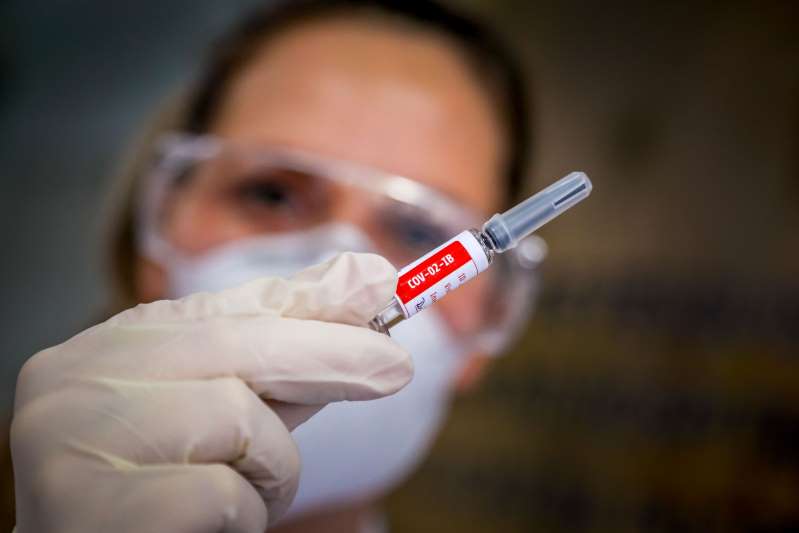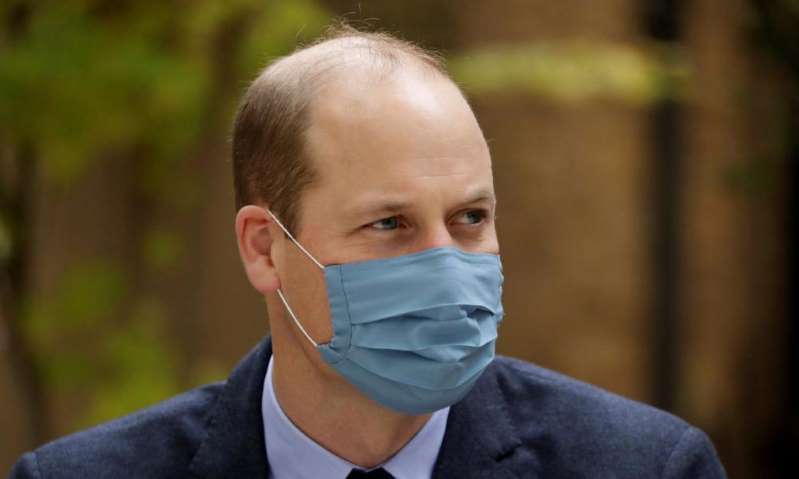Coronavirus infections surge in Italian jails - guards' union












Coronavirus infections surge in Italian jails - guards' union
ROME (Reuters) - COVID-19 is spreading rapidly through Italian jails, a prison guard union said on Thursday, urging the government to do more to contain the outbreak.
On Nov. 8, 1,265 guards and prisoners tested positive for the new coronavirus, almost four times the 344 who tested positive 13 days earlier, union data showed.
Jails in Milan and Naples were hit especially hard, and guards accounted for almost 60% of all those infected.
Most prisoners have not needed to be admitted to hospital and are being treated in jail, the OSAPP union said.

"We demand that local health authorities check ... that the shared areas meet health standards," it wrote in a letter on Thursday to ministries and officials.
The justice ministry did not immediately respond to a request for a comment.
After the coronavirus first hit Italy late in February, prisons became an immediate concern due to their chronic overcrowding, which rights groups have long denounced as a human rights violation.
Italy's prisons house some 54,900 people, above the maximum capacity of around 50,500, official data show.
Violent riots swept penitentiaries in March after the government imposed visiting restrictions to try to contain the virus. At least 12 prisoners died, many from drug overdoses after raiding prison medical supplies.
"I hope that those responsible for taking immediate decisions do not wait until they become inevitable because of protests and deaths," said OSAPP union leader Leo Beneduci.
During the initial COVID outbreak, the government released some elderly prisoners, including more than 300 mobsters and drug dealers, to relieve pressure in the jails - but the decision triggered an outcry and a prompt U-turn.
Better test and trace can give London back its bustle













Better test and trace can give London back its bustle
From Pop Brixton to the Palladium, this month businesses across our capital have once again closed their doors and sent staff home.
It has been hard to watch London lose its bustle this year. But while the vibrancy is missing, it’s not lost; economic and social wounds can be healed if we take the right steps now.
The CBI’s London Business Survey — produced in partnership with UCL and Travers Smith, and set to publish full findings later this month — shows how companies are desperate to see London roused from its enforced slumber. And, crucially, to build back a fairer, greener and more inclusive capital.

Such a desire is understandable, as eight in 10 of our respondents saw a trading downturn due to Covid this year. The summer recovery seems to have been tentative, at best.
Sixty eight per cent of respondents have not yet seen output return to pre-Covid levels and 34 per cent don’t expect a full recovery in the next year. That rises to 75 per cent among those in the arts, entertainment and recreation industry.
Now, more than ever, we need to focus on the actions which can really drive a recovery.
What can be done? In short, testing. Its role is crucial, even with a workable vaccine. Seventy-seven per cent of respondents cited a more effective test, trace and isolate system as essential for recovery.
Over half said accelerating airport testing to reduce quarantine restrictions was vital. Together, these actions can help people resume interrupted routines and restore confidence.
Firms are ready play their part in this revival story — and a palpable shift in consciousness saw over half state that business had made progress on tackling equality but still weren’t doing enough. This commitment to societal change can serve as a clarion call.
Encouragingly, priorities for the coming year include investing in innovation and technology, supporting mental health and wellbeing, and revising flexible working policies.
Ditching the positives from virtual ways of working is not on the agenda. Instead, many aim to blend the best of the old with the new.
Above all, we need our bustle back. Controlling the virus, restoring stability, rebuilding confidence. Our short-term actions can lay the foundations for long-term success.
Eddie Curzon is CBI London Director
Pfizer covid vaccine - everything we know so far










Pfizer covid vaccine - everything we know so far
At long last, the first real glimmer of hope. As the pandemic continues to rage, with at least 1.2 million people now dead, the news that a vaccine has shown to be highly efficacious marks a major milestone in the fight against Covid-19. It is a moment the world has been anxiously waiting for.
Pfizer and its German partner BioNTech are the first to reach this stage of the global vaccine race. According to early data analysis, their candidate is 90 per cent effective at preventing disease, while no serious safety concerns have been observed. The right signs are all there.
There are, of course, caveats. No one beyond the researchers and scientists have actually seen the data. Nor has it been peer reviewed. The fact that Pfizer’s large-scale phase 3 is still ongoing means the vaccine’s final efficacy rate could also drop. And it is not known how long immunity will last among the vaccinated.
These are all questions that still need to be answered in the weeks and months ahead. But, for now, there is cause to smile. Amid the doom and gloom of 2020, it certainly feels like the first tentative step towards the light at the end of the tunnel.
So, what do we know about the vaccine?
The vaccine is 90 per cent effective at preventing disease, Pfizer says. Preliminary analysis looked at 94 infections recorded so far in the company’s phase 3 study, which has enrolled nearly 44,000 people in the US and five other countries.
According to Monday’s announcement, those from black, Asian and minority ethnic backgrounds respond just as well to the vaccine – a much-needed development for those communities that have suffered disproportionately throughout the pandemic.
There is no indication that the vaccine blocks transmission of Sars-CoV-2, so people may still be able to pass on the virus but are less likely to display symptoms. This will be crucial in reducing the number of people who fall severely ill, helping to alleviate pressure on national health services.
Protection is achieved 28 days after the initiation of the vaccination, which consists of two doses, Pfizer said.
Lastly, we know that the vaccine is safe. Pfizer and BioNTech have reported that no serious safety concerns or adverse reactions have been noted.

What don’t we know?
How long immunity lasts for. At this stage, it’s simply impossible to judge at what point the immune response triggered by the vaccine will fade away. Six months? Eight months? A year, perhaps? Many experts have predicted that it’s likely booster jabs will need to be administered, especially among the elderly who are known to have weaker immune systems.
We don’t know what sort of immunological activity it generates in different demographic groups. Scientists and governments will be particularly keen to see the vaccine’s effectiveness among those aged 60 and above.
Similarly, experts have said the full effect of a vaccine on transmission in the population will not be known until one is in circulation and more data is collected.
Nor can we be sure of the vaccine’s final efficacy rate. The phase 3 study is still ongoing, and Pfizer has said it will make a final review of all its data once 164 infections have been recorded among the trial’s participants.
This figure will give the regulators a clearer indication of the vaccine’s effectiveness, but there’s a chance it could drop in the weeks to come. Pfizer said it expects to reach the magic number by early December.
What comes next?
Once the necessary amount of infections has been reached, all the trial data will be presented to the US Food and Drug Administration for market approval. Pfizer previously said it will apply for Emergency Authorisation Use in the US, thereby speeding up the rate at which data is reviewed.
If approval is granted, Pfizer will rapidly scale-up its dose production and distribution for the global market – a process that is expected to take many months.
The company aims to manufacture a total of 1.3 billion doses throughout 2021.
Whenever a vaccine does arrive, doses will be scarce and rationed, with priority set to be given to health care workers and others on the front lines.
Can we expect challenges in the global rollout?
Absolutely. The Pfizer vaccine uses mRNA technology, which involves injecting genetic coding into humans to replicate the ‘spike’ protein seen on Sars-Cov-2, thereby triggering the immune response. However, this type of vaccine is highly unstable and needs to be stored at -80C. This makes the transportation and storage of doses difficult and expensive.
“This could create major logistical challenges for mass treatment outside major urban areas and in low or middle income countries,” said Andrew Hill, a senior visiting research fellow in the department of pharmacology at the University of Liverpool.
When we expect life in the UK to return to normal?
According to professor Sir John Bell, a member of the government’s Scientific Advisory Group for Emergencies, life in the UK could start returning to some degree of normality by spring next year.
“I’m probably the first guy to say that but I will say that with some confidence,” said Sir John, who is regius professor of medicine at Oxford University.
Professor David Nabarro, the WHO special envoy on Covid-19, was less optimistic in his assessment.
“Even if a vaccine arrives in the near future we’ve got many months of still dealing with the virus as a constant threat,” he said. “The vaccine will help, but it’s not going to be a complete game changer.”
Peter Horby, professor of emerging infectious diseases at Oxford university, said “there is a long, long way to go before vaccines will start to make a real difference”.
No 10 has said it expects to access 10 million doses of the Pfizer vaccine before the end of the year, which means up to 5 million people could be vaccinated. A further 30 million doses will follow throughout 2021.
These first jabs will be made available for the most vulnerable in society, along with healthcare workers on the frontline, in accordance with government guidance.
Should the Oxford University vaccine also prove effective, the UK will have access to a further 60 million doses – but these too will take time to be manufactured and rolled out. (There are also questions of which groups in society will receive which vaccine, assuming more than one works).
Either way, the idea that coverage of the UK population could be achieved by spring is very unlikely. However, there is hope that the impacts of the pandemic on our daily lives may have eased by next summer
What are the advantages of the technology used by the Pfizer vaccine?
No actual virus is needed to create an mRNA vaccine. This means the rate at which the vaccine can be produced is dramatically accelerated. As a result, mRNA vaccines have been hailed as potentially offering a rapid solution to new outbreaks of infectious diseases.
In theory, they can also be modified reasonably quickly if, for example, a virus develops mutations and begins to change.
mRNA vaccines are also cheaper to produce than traditional vaccines. But both will play an important role in tackling Covid-19.
Any other good news?
Yes. There are a number of other vaccines in development that use the same mRNA technology as Pfizer, including the Moderna candidate, which is also expected to announce its phase 3 trial data soon.
On account of this, experts are confident there will be more than one vaccine capable of generating an immune response.
Richard Hatchett, chief executive of the Coalition for Epidemic Preparedness Innovations, said: “We believe these interim results also increase the probability of success of other Covid-19 candidate vaccines which use a similar approach.”
Sir Bell said: “It rolls the pitch for other vaccines because I can't see any reason now why we shouldn't have a handful of good vaccines.”
Prince William 'tested positive for coronavirus' in April













Prince William 'tested positive for coronavirus' in April
The Duke of Cambridge tested positive for coronavirus in April, according to reports.
The BBC said it had been told by Buckingham palace sources that Prince William had contracted Covid-19 that month.
According to the Sun, which first reported the story, William continued with his telephone and video engagements, and told one observer he had not wanted to worry anyone.
When contacted on Sunday, Kensington Palace declined to comment but did not deny the claim.

According to the Sun, William said he did not tell anyone about his positive test result because “there were important things going on and I didn’t want to worry anyone”.
The newspaper said he was treated by palace doctors and followed government guidelines by isolating at the family home Anmer Hall, in Norfolk, carrying out 14 telephone and video call engagements during April.
William’s father, the Prince of Wales, contracted coronavirus in March and he quarantined with mild symptoms separately from the Duchess of Cornwall, who tested negative, for 14 days.
Prince Charles and Camilla reunited just days before their 15th wedding anniversary in April.
In his first public engagement after recovering from mild symptoms, Charles revealed he lost his sense of taste and smell when he had coronavirus.
He spoke of his personal experience with Covid-19 when he met frontline NHS staff and key workers in person with Camilla in mid-June.
Reference: Guardian staff and agency;
Articles - Most Read
- Home
- LIVER DIS-EASE AND GALL BLADDER DIS-EASE
- Contacts
- African Wholistics - Medicines, Machines and Ignorance
- African Wholistics -The Overlooked Revolution
- African Holistics - Seduced by Ignorance and Research
- The Children of the Sun-3
- Kidney Stones-African Holistic Health
- The Serpent and the RainBow-The Jaguar - 2
- PART ONE: DIS-EASE TREATMENT AND HEALTH-3
- 'Tortured' and shackled pupils freed from Nigerian Islamic school
- King Leopold's Ghost - Introduction
- PART ONE: DIS-EASE TREATMENT AND HEALTH-4
- PART ONE: DIS-EASE TREATMENT AND HEALTH-2
- PART ONE: DIS-EASE TREATMENT AND HEALTH-5
- African Wholistics - Medicine
- Menopause
- The Black Pharaohs Nubian Pharaohs of Ancient Egypt
- The Mystery System
- PART ONE: DIS-EASE TREATMENT AND HEALTH-6
Who's On Line?
We have 91 guests and no members online
Ad Agency Remote
Articles - Latest
- The Male G Spot Is Real—and It's the Secret to an Unbelievable Orgasm
- Herbs for Parasitic Infections
- Vaginal Care - From Pubes to Lubes: 8 Ways to Keep Your Vagina Happy
- 5 Negative Side Effects Of Anal Sex
- Your Herbs and Spices Might Contain Arsenic, Cadmium, and Lead
- Struggling COVID-19 Vaccines From AstraZeneca, BioNTech/Pfizer, Moderna Cut Incidence Of Arterial Thromboses That Cause Heart Attacks, Strokes, British Study Shows
- Cartilage comfort - Natural Solutions
- Stop Overthinking Now: 18 Ways to Control Your Mind Again
- Groundbreaking method profiles gene activity in the living brain
- Top 5 health benefits of quinoa
- Chromolaena odorata - Jackanna Bush
- Quickly Drain You Lymph System Using Theses Simple Techniques to Boost Immunity and Remove Toxins
- Doctors from Nigeria 'facing exploitation' in UK
- Amaranth, callaloo, bayam, chauli
- 9 Impressive Benefits of Horsetail
- Collagen The Age-Defying Secret Of The Stars + Popular Products in 2025
- Sarcopenia With Aging
- How to Travel as a Senior (20 Simple Tips)
- Everything you need to know about mangosteen
